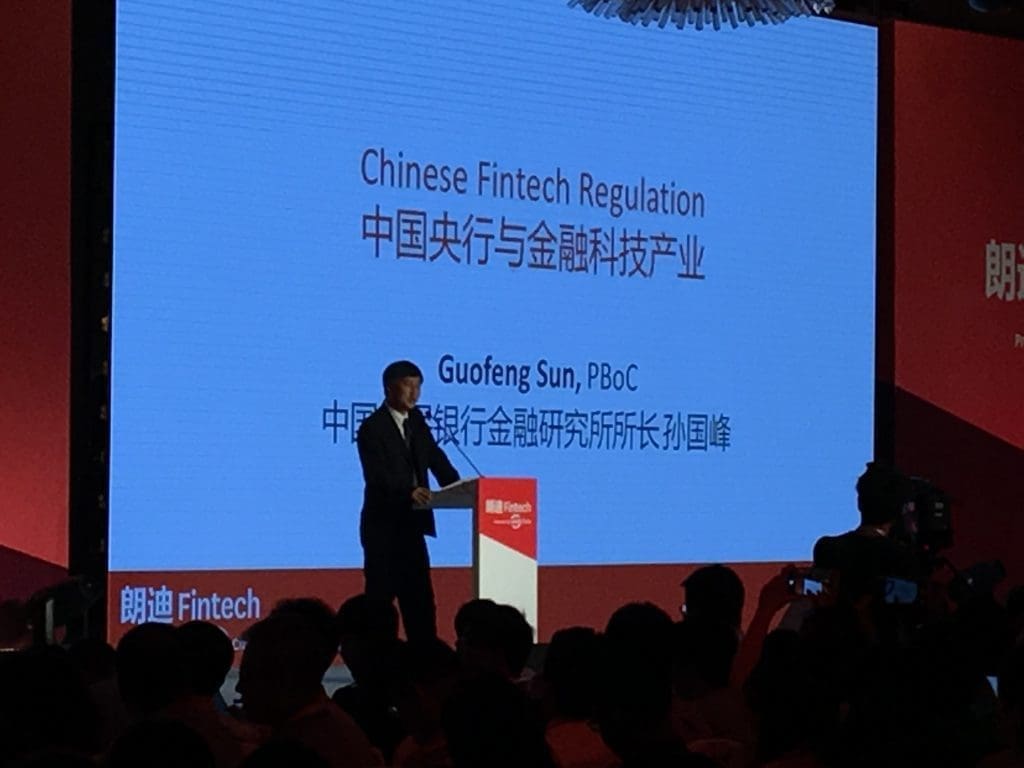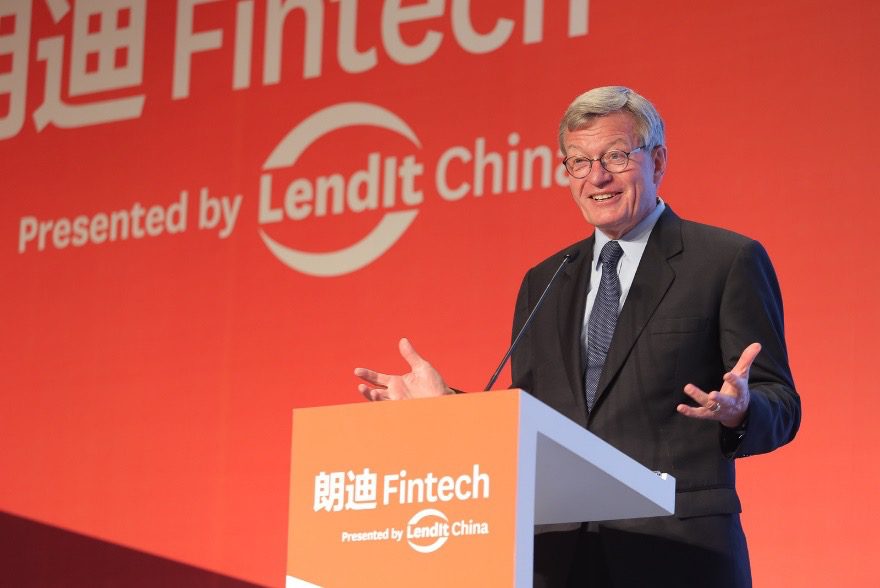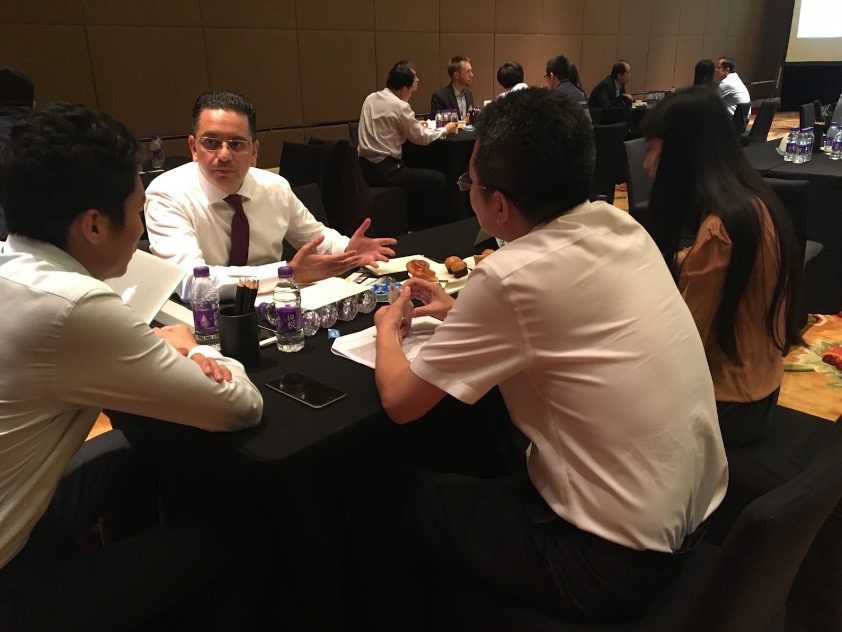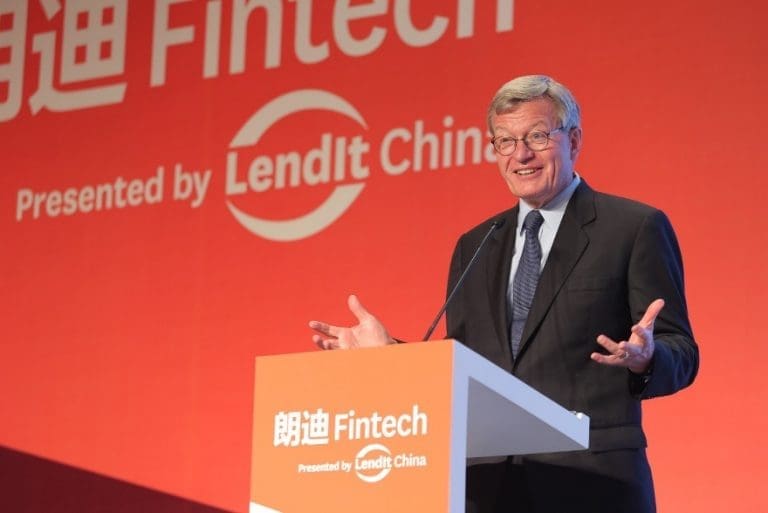On July 15-16, 2017 we hosted the annual Lang Di Fintech conference. Lang Di is the largest and most prestigious fintech event in China, and it is one of LendIt’s cornerstones, including our USA and European conferences. For two days in Shanghai, the world’s fintech leaders gather for a truly unique conference experience, networking and peer sharing.
Leading up to Lang Di, we led a weeklong tour of China – to Macau, Hong Kong, Beijing and Shanghai – with an elite group of executives from all over the world. On Tour and at Lang Di we gained keen insights, planted and cultivated the seeds of business development, and developed a strong bond among each other and many of our Chinese hosts.
What follows are some of the observations I made while there.
Billions
In China there are more than a billion consumers that are generally underserved across a broad spectrum of financial services, making for a diverse and exciting array of opportunities to address. Yet China is dominated by giants – institutions like Bank of China and technology firms like Alibaba –companies that have tens of thousands of employees and hundreds of millions of customers. The scale of the opportunity is enormous, and so is the size of the companies trying to address it.
This is not to say that small businesses cannot survive. In the much-anticipated comments of Mr Sun Guofeng of the People’s Bank of China (PBoC), the standing-room only audience heard a clear message that the government wishes to provide an umbrella of support to the emerging Chinese fintechs. Many of my Chinese colleagues were simply elated to hear the remarks of Mr Sun. It was a brilliant speech. Brilliant. Why? He pronounced a message and a mission: first, that China is a fintech leader, second that China must lead the world, and third that challenger fintechs were important players in the plan.

Consumer protection is important (do you hear the rattling of the sabre?) but at the same time, we want to keep the good among us (do you see the passing of the olive branch?). The PBoC wishes to harmonize and rationalize the regulations, and allow for the convergence of fintechs and banks. While the focus may be on the “national champions,” the PBoC won’t let them choke out the upstarts. In essence, the government of China is placing a protective order around innovation and entrepreneurship. If this sounds strange or surprising to you, it’s time to get beyond the headlines and visit China to see for yourself what’s really going on there: a massive onslaught of entrepreneurship the world has not witnessed since the post-war American boom.
An American in Shanghai
The six-term senator from Montana, former Chairman of the Senate Finance Committee and former Ambassador to China, Max Baucus, gave a charged speech on his views of Sino-American collaboration in the new world of Ethereum, Alipay, IBM Watson and Amazon Web Services. “The living standards of our children and grandchildren depend on us getting along,” he said. With $60 billion in trade between the countries, more than 2 million travel visas and 300,000 student visas issued each year, our countries are irreversibly intertwined. It is essential that the citizens of our countries understand and respect each other, and enjoy the benefits of working together.
Ambassador Baucus praised China for its energy, enthusiasm and pragmatic spirit. China is leapfrogging US payment systems with Alipay and WeChat Pay, two mobile-only QR-based payment systems that have seen rapid, massive adoption and will soon render cities and villages all across China cashless and cardless.

American companies who do best in China spend a lot of time here, said Baucus. His one word of advice: “just go.” Get out the door, get to China, and meet your counterparts. It’s important for America, and it’s important for you. Sure, it may be intimidating to huck yourself over the border, but personal relationships are critical to the Chinese. They will respect you for trying, so long as you approach them with an empty cup.
Where Fintech is Leading Us
New advances in fintech empower individuals to break down the power of established institutions, eliminate the friction of agents and middlemen, and provide a path to a more sustainable way of life. Ant Financial has 600 million customers worldwide. Nearly 10% of the entire world population. For those of you who have a casual disdain for facts & figures, here’s a little help: this is an absolutely astounding number for a company to claim after being in business for less than three years. If there is one service that will bring about the cash free society, it is Ant Financial’s Alipay. If there is another, it will be 10Cent’s WeChatPay. Both are Chinese, and both have architected flawless, immediate systems of instant payment using 2-dimensional QR codes to securely pay anyone, anywhere, anytime, with your mobile phone. Pay the street vendor in Hangzhou? Yes. Transact at Shoe Heaven in Harrod’s in London? Yes. Alipay and WeChatPay have leapfrogged anything we’ve developed in the Western world with a pretty simple UI and a wicked smart back end.
New developments in fintech allow service providers to understand with great confidence who you are. This is referred to as KYC/AML, a clumsy acronym that stands for Know Your Client / Anti-Money Laundering. Getting this right on mobile devices is critical for any serious financial service provider. And it’s not easy. That’s why you see so much venture excitement around biometrics these days, because giants like Lufax – the world’s largest online lender – depend on biometrics to deliver services to its massive installed base while minimizing borrower fraud. The Chinese government is rightfully concerned about how the 2000+ p2p lending companies in China manage their lending practices and limit fraud. All this underscores the point that fintech will only succeed when it builds the trust and full support of regulators.
Which brings us to innovations in regulation technology, or regtech, that are allowing companies to better comply with complex banking, consumer protection and securities laws at city, provincial and national levels. Regtech also allows governments to more effectively monitor companies’ behaviors, the combination of which will allow for more trust and cooperation among companies and their governing institutions. The trend of tighter regulation in the fintech industry in China is both necessary and healthy. Change is coming on so fast now that corporations and governments cannot possibly keep up without technology to help them.

Also coming strong on the scene this year is the development of artificial intelligence applied to financial services. Nearly every keynote on the main stage mentioned AI or machine learning at some point in their speech, its relevance being so universally acknowledged. Machine learning is essentially the only way humans can begin to comprehend the onslaught of data that we have created for ourselves. When 90% of the world’s data were created in the last two years, it is obvious that our ability to create data has far outstripped our ability to measure and analyze it. This is why companies like ZhongAn (online insurance), Phoenix Finance (wealth management), Lexin (green finance), Wedai (car finance), Credit Karma (financial education), Upgrade (consumer lending in the US), and Lufax (consumer lending & wealth management in Asia) all tout AI/ML as a cornerstone of their strategies.
A new paradigm in the tech world is the blockchain, a topic that seems to be permeating every discussion in the finance. This protocol of trust provides an immutable record of transactional information that is determined by independent, disinterested network nodes. The blockchain makes it possible to record every action, every transaction, and it is disruptive to virtually any service provider whose main purpose it is to vouch for the veracity of a transaction. The blockchain provides a new platform on which applications of incredible utility – like smart contracts – may be built.
In the end, fintech is leading us to a more inclusive financial system, which is to say that financial services will be more accessible, more comprehensive, more affordable, and more sustainable.
Credit Is Wealth
A FICO score seems to be the birthright of every US citizen. While the unintended consequences of the Dodd-Frank Act have now made it more difficult for a college graduate to leave school with a credit report – and the underbanked in America are still left in the cold – for the most part we Americans think of our FICOs as a natural attachment to our financial selves. We’ve grown accustomed to the benefits of credit. Too well acquainted with it, in fact, as US household debt now hovers north of a trillion US Dollars.
Not in China. While the household debt-to-GDP ratio on the United States is 87%, in China it is 40%. Healthier, yes indeed. However, credit is wealth, and the Chinese citizenry have yet to discover this because they have yet to achieve a FICO-like score that can be used to create efficient personal liquidity in one of the world’s largest economies. If the government, banks and fintechs can figure out how to get out of their own way and collaborate in the midst of their conflicts of interest, look out.

The Next Step
In the United States, we are blessed to have a generally well-served population. We have some inefficiencies in our financial system, but most fintechs are really only selling conveniences. We have a much smaller population, and a government that is distracted, complacent and slow. In contrast, China has a vast population of desperately underserved and motivated citizens. The standard of financial services are far less developed for the majority of the population. And yet in commercial centers like Shanghai, Hangzhou, Shenzhen and Beijing, fintechs are developing incredibly advanced services that are often leapfrogging what we have in the West.
China is a wonder. It’s an enigma, it’s a machine, it’s a bonanza. It’s all of these things, and it’s nearly impossible to capture in words. To quote Ambassador Baucus: to understand it you Must. Just. Go.

This past week has been an incredible journey for me and my fellow fintech execs who partook in the LendIt China Executive Tour and the Lang Di Fintech conference. We were twenty extraordinary peers who locked arms and dove into China’s most vibrant and forward-thinking cities. We engaged with some of the world’s leading investors, entrepreneurs and technologists. We were welcomed by fellow fintech innovators, and celebrated by the media. We were ambassadors for our countries – the United States, Canada, Russia, Switzerland, among others. We pitched, we networked, we exchanged. We dined, we explored and we adventured. I will never forget my comrades of Tour ’17. And yet, not a week has passed and I am already looking forward to the next one.
Special thanks to Peter Renton, Gabriel Hai, Jason Jones and Conan French for their insights.


